Taking Beauty Out of the Trash
By Aabha A. Kale
December 9, 2022
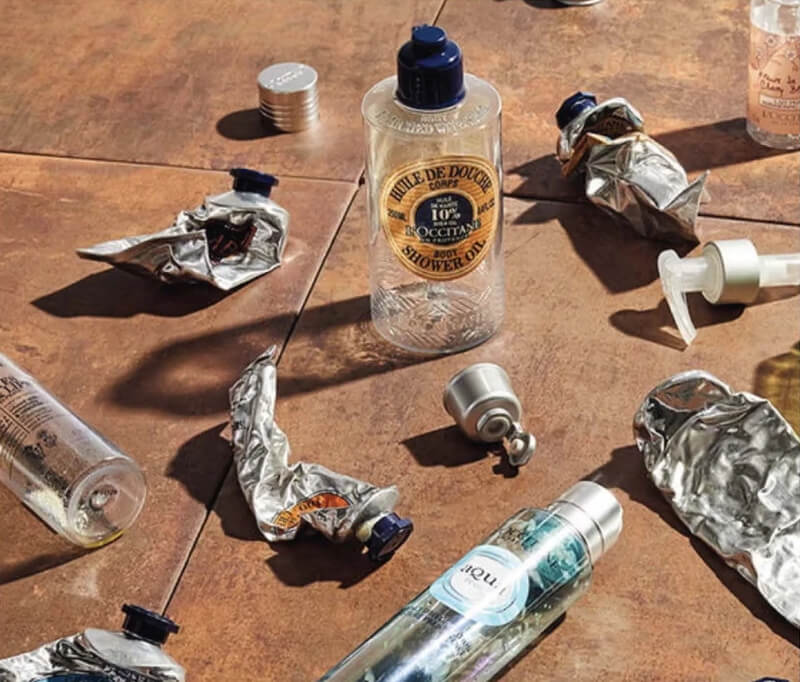
The EPA reports that the beauty industry in the United States, one of our fastest growing industries, contributes more 120 million units of non-recyclable packaging and pollutants each year. Seventy percent of this waste gets thrown into landfills in its untreated and unprocessed form. Most of this packaging requires specialized recycling, and the recycling capabilities of our retail ecosystems are already heavily burdened and unequipped.
While we continue to use beauty products to make ourselves feel confident, we don’t always actively participate in action for its recycling. ID students Mayukhi Chacham (MDes 2023), Palak Shah (MDes 2023), and Smrti Ganesan (MDes 2023) formulated ReSolve, an elegant and efficient solution that helps beauty enthusiasts actively participate in recycling. ReSolve helps to redirect high grade hazardous beauty waste toward specialized and genuine recycling services in a format that could be economically viable and feasible.
More and more consumers are adopting beauty products as a part of their everyday lives—the beauty industry has a growth rate of five percent every year according to Statista. In order to make the products easy-to-use, easy-to-carry, and disposable, they are often sold in plastic packaging that cannot be fully recycled through conventional methods.
While many brands have created products that are recyclable and eco-friendly, a vast majority of beauty brands have been able to get away with greenwashing, a practice where brands build an ethical image and charge premium prices for it. In addition, existing recycling initiatives are limited in their volumes and face supply chain issues. So most of the beauty products we use, eco-friendly or not, do not have proper channels for disposal, leading consumers to discard them into our conventional garbage systems.
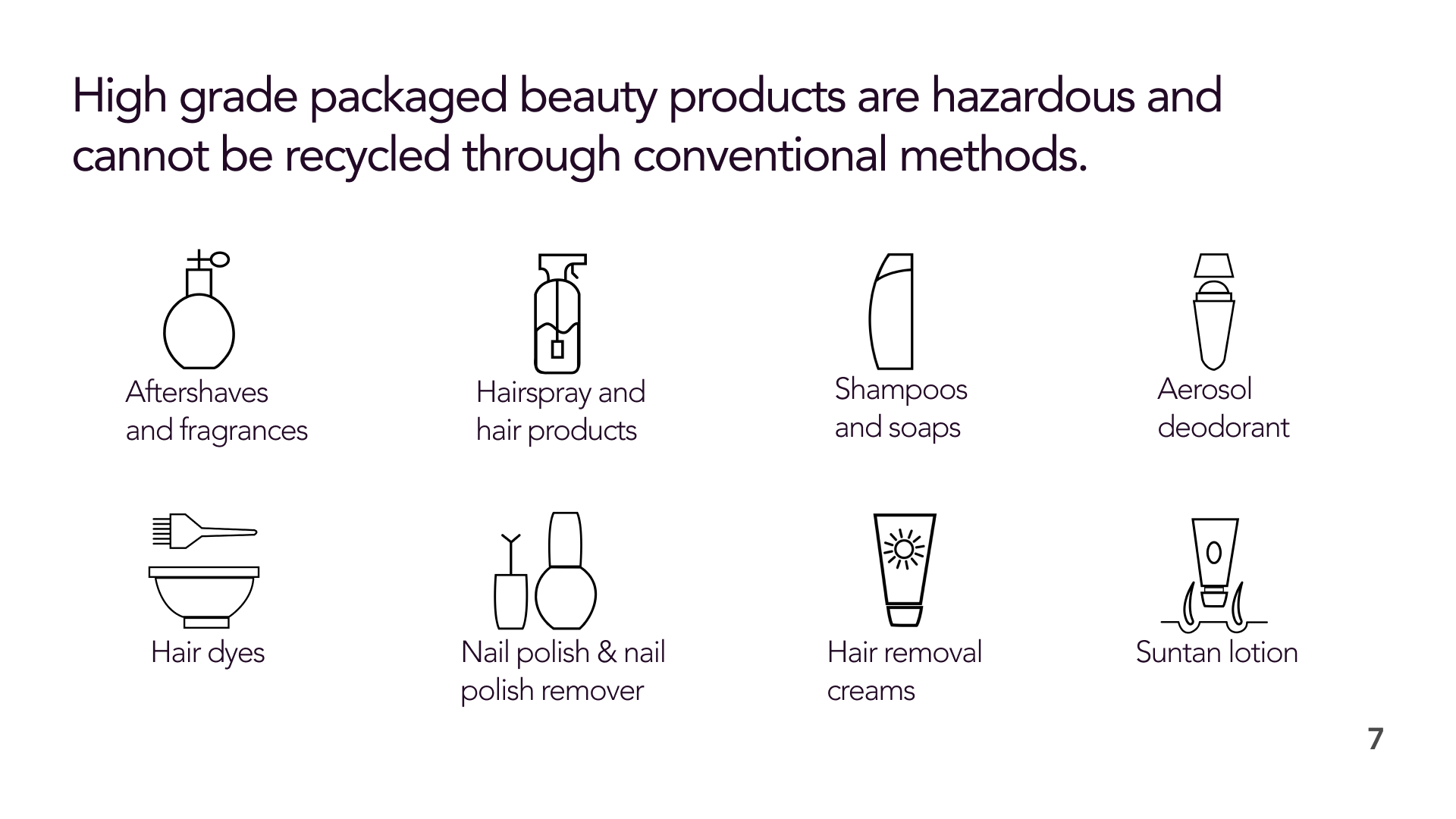
Through over a dozen in-depth user interviews with shoppers and employees, the ReSolve team found that a category of users are actively interested in recycling their used beauty products. While they use products that may not always be recyclable, they would be interested in going the extra mile and taking action to recycle.
Some of the biggest issues consumers had with the current avenues of recycling were a) lack of recycling channels for these specific products and b) no visibility of the impact of their recycling actions. Many users also found buying eco-conscious brands very expensive and the act of recycling to be too much work. The ReSolve team sought to solve for easy access to recycling channels as their first step.
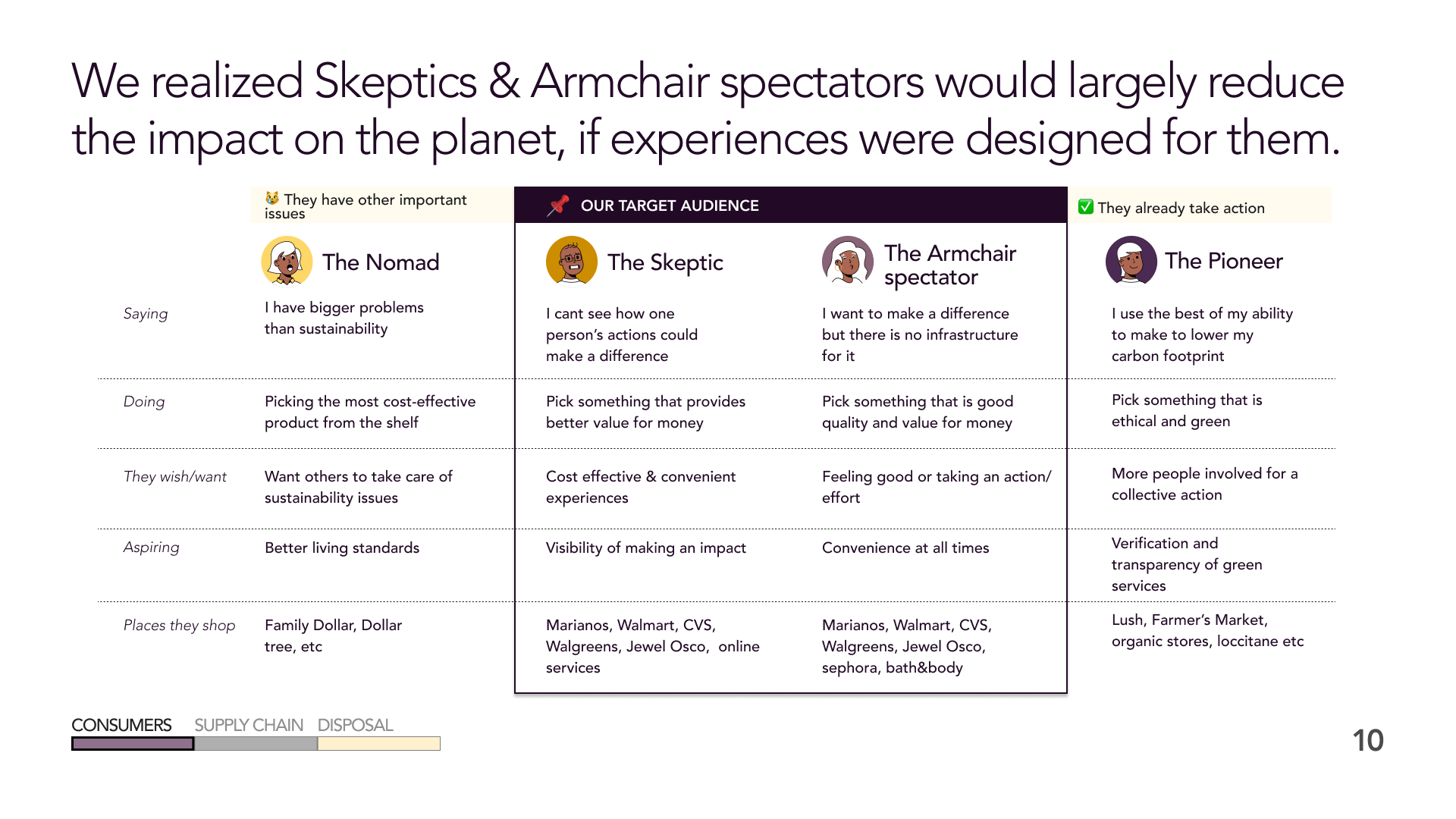
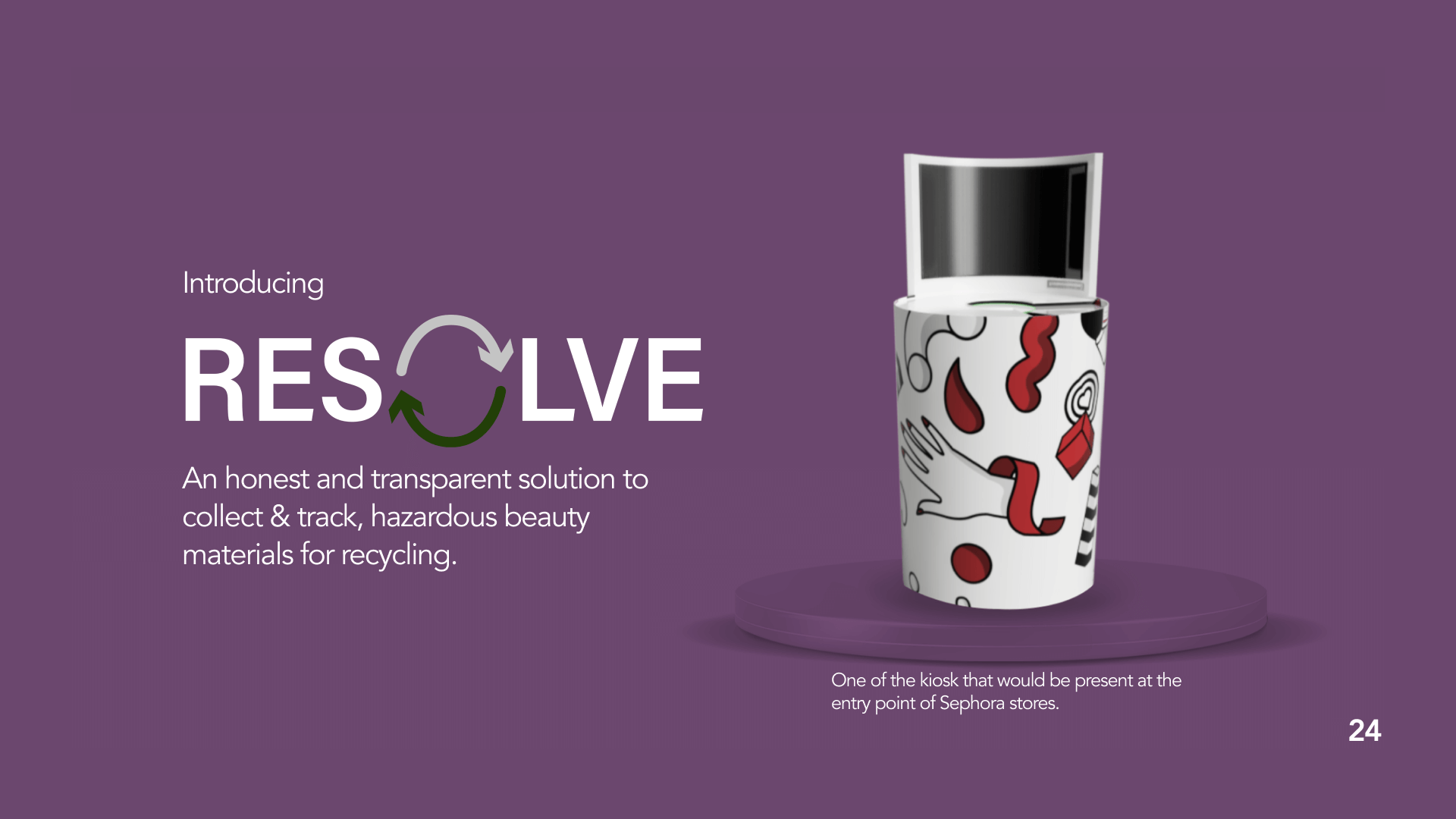
ReSolve also sought to understand the issues in the supply chain by mapping stakeholders and players in the recycling process. Issues of waste collection and transport to suitable recycling facilities were priority areas to address. The solution now had to be engineered for identifying the types of high-grade waste to be recycled and easy sorting for recyclers. Through brainstorming and insight development, the team built ReSolve around four core values in recycling: building trust, adding convenience, distributing responsibility, and taking action in the present.
Keeping in mind the urgency of today’s situation, the project can be implemented with the right collaboration between beauty brands and specialized recycling services.
ReSolve creates kiosks that can be placed near major drug stores and beauty retailers. The kiosk will scan the product and determine its category. After dropping off the product in the right section, the user can receive offers and rewards through the ReSolve app that they can utilize in the nearest beauty store. The user can also track the status of their recycled products as they move through their recycling journey.
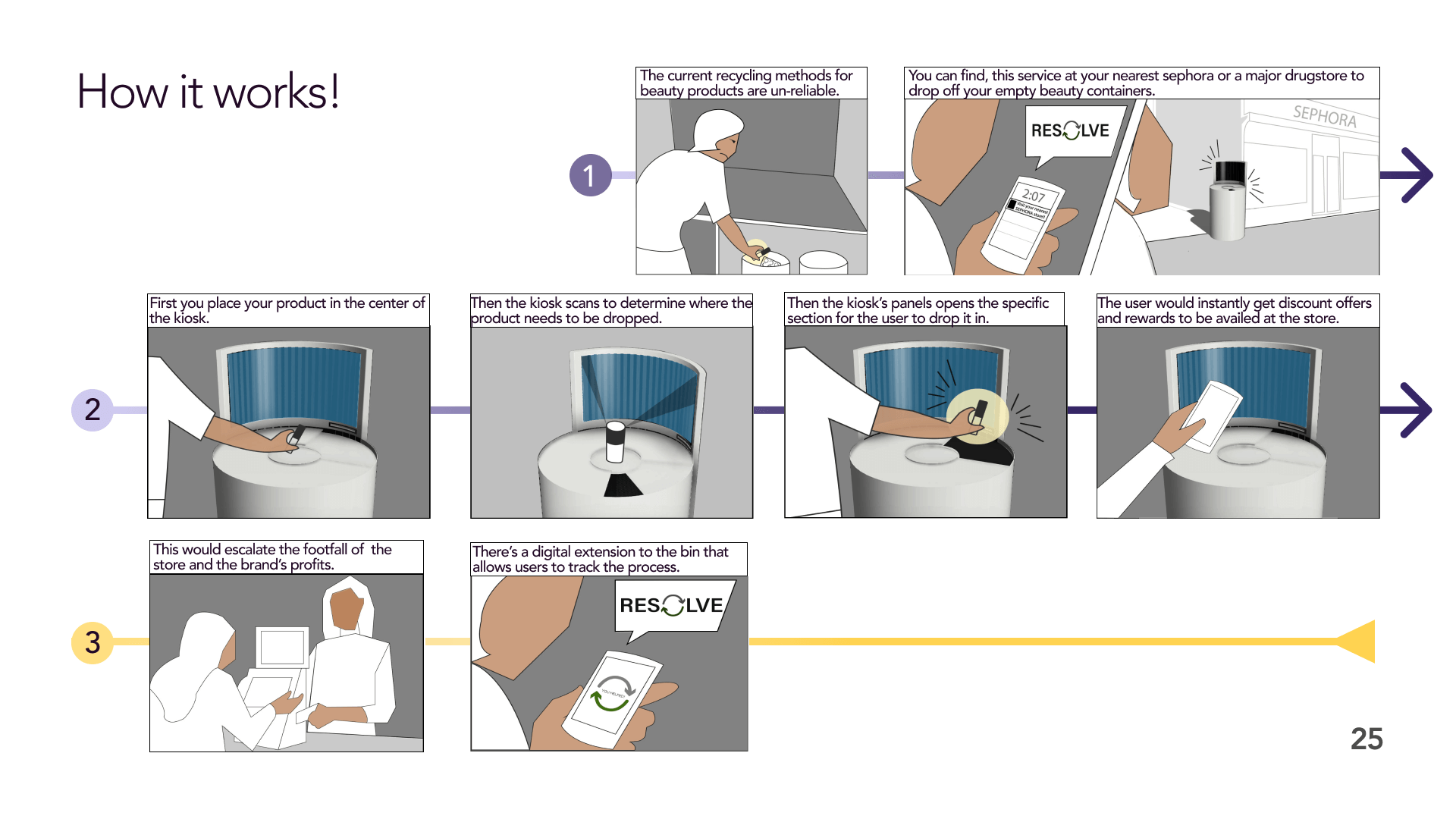
These products are sorted, organized, and transported to recycling facilities.
The appropriate recycling facilities use specialized processes to ensure that the product is ecologically and ethically recycled. They plan on partnering up with recyclers to create a scalable operation.
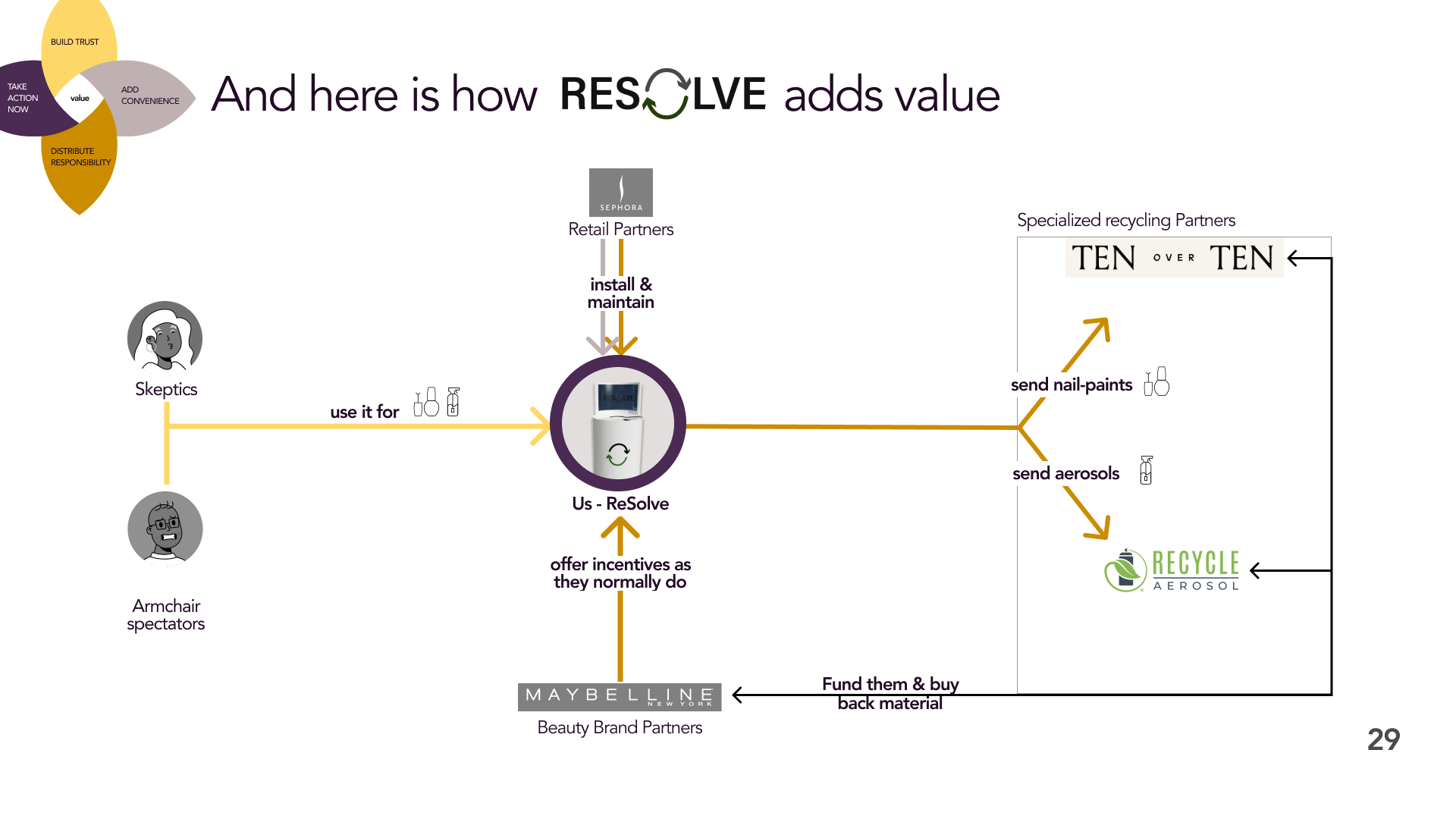
This project was created by ID students for the White Space challenge by Northwestern University. Students utilized several of the frameworks and concepts they learned through different ID courses, inlcuding like Analysis and Synthesis in Design, Building and Understanding Context, and Diagram Development. The project was mentored by Associate Professor of Practice Mark Jones and Adjunct Faculty Shilpi Kumar.
ReSolve helps in finding appropriate and sustainable recycling channels for high grade hazardous beauty waste by asking consumers to initiate the process and providing transparency in it. It also involves mass-market beauty brands by creating them equal partners in taking action on their sustainability responsibilities. The product is a hopeful example to how individuals and organizations can work together to create actionable change in the industry.